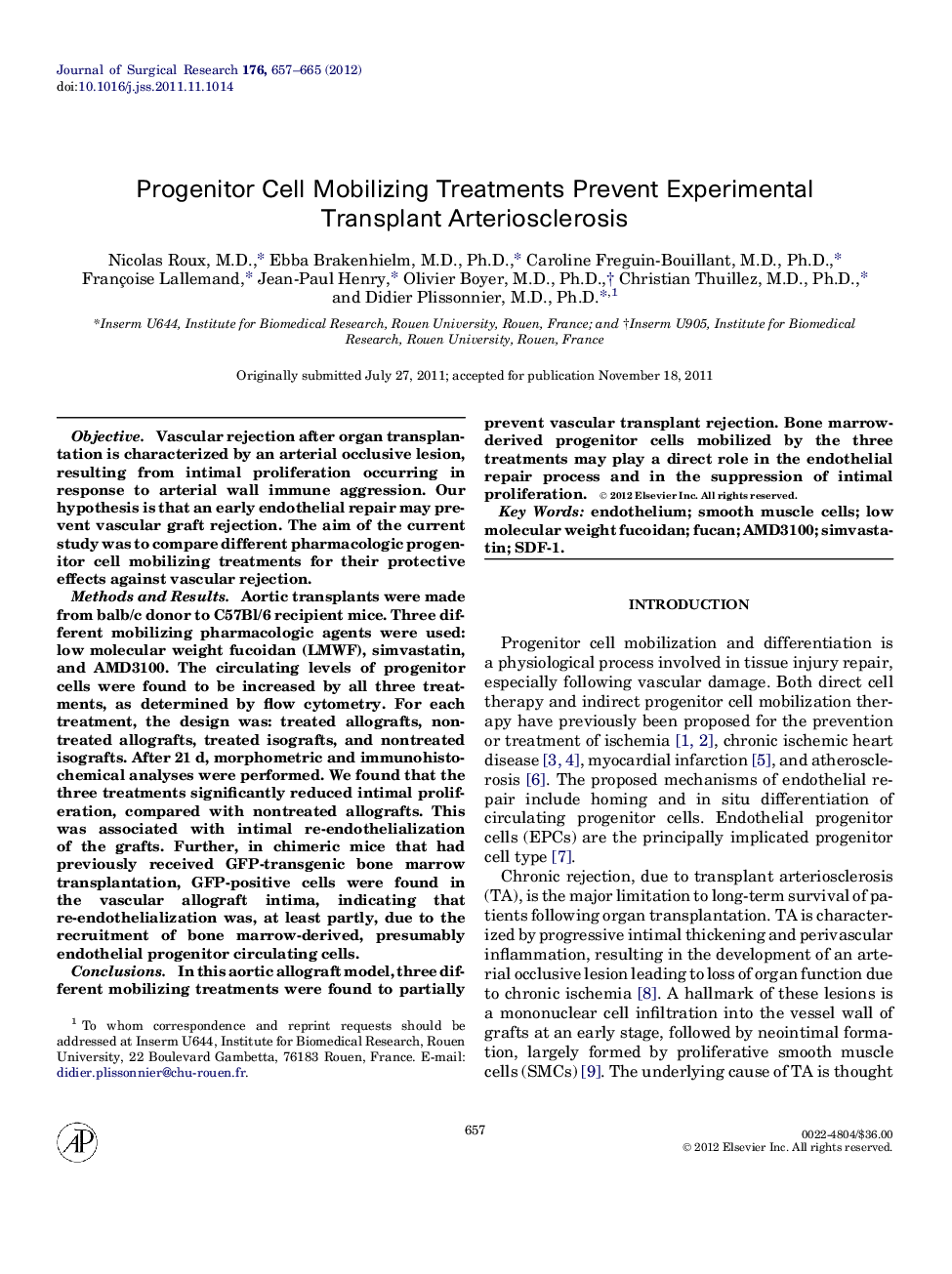| Article ID | Journal | Published Year | Pages | File Type |
|---|---|---|---|---|
| 4301952 | Journal of Surgical Research | 2012 | 9 Pages |
ObjectiveVascular rejection after organ transplantation is characterized by an arterial occlusive lesion, resulting from intimal proliferation occurring in response to arterial wall immune aggression. Our hypothesis is that an early endothelial repair may prevent vascular graft rejection. The aim of the current study was to compare different pharmacologic progenitor cell mobilizing treatments for their protective effects against vascular rejection.Methods and ResultsAortic transplants were made from balb/c donor to C57Bl/6 recipient mice. Three different mobilizing pharmacologic agents were used: low molecular weight fucoidan (LMWF), simvastatin, and AMD3100. The circulating levels of progenitor cells were found to be increased by all three treatments, as determined by flow cytometry. For each treatment, the design was: treated allografts, nontreated allografts, treated isografts, and nontreated isografts. After 21 d, morphometric and immunohistochemical analyses were performed. We found that the three treatments significantly reduced intimal proliferation, compared with nontreated allografts. This was associated with intimal re-endothelialization of the grafts. Further, in chimeric mice that had previously received GFP-transgenic bone marrow transplantation, GFP-positive cells were found in the vascular allograft intima, indicating that re-endothelialization was, at least partly, due to the recruitment of bone marrow-derived, presumably endothelial progenitor circulating cells.ConclusionsIn this aortic allograft model, three different mobilizing treatments were found to partially prevent vascular transplant rejection. Bone marrow-derived progenitor cells mobilized by the three treatments may play a direct role in the endothelial repair process and in the suppression of intimal proliferation.
